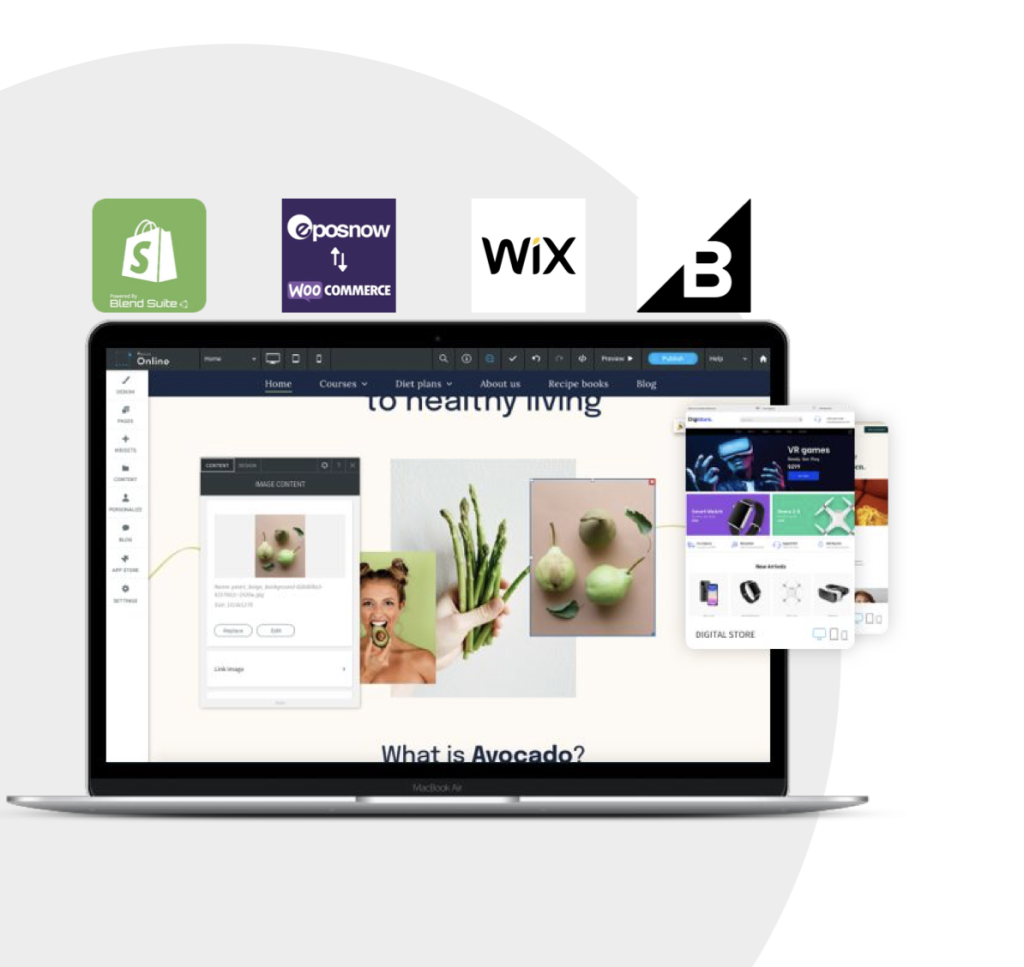What is an EPOS system?
Epos stands for Electronic point of sale. It gives you an all in one system enabling you to be able to track your sales. Give yourself an overview of your inventory. And automate many tasks.
With traditional pos systems such as a cash register you are limited to a till which simply inputs manual data and runs it off in a long list at the end of the day. Epos will give you much more data and abilities in various areas.
The main benefits of an EPOS over standard POS is the ability to track and manage your sales/inventory, retrieve customer information, monitor staff and generate a range of reports. Not to forget most systems will integrate with your favourite platforms such as ecommerce, accounting (xero, quickbooks) and many more apps.
Let’s break down the main benefits in an epos system.

Sales and Payments
When you think of your day to day work flow, the one thing you do not want to do is complicate your day to day sales. Enable yourself and your team to be as quick and efficient as possible. Epos gives you the opportunity to give you a simple process of electronically organising your products in an easy to display way on your tablet, mobile or computer screen. Simply click or scan your stock/services you are selling, head to your payment page then take your payment by cash or card. With most systems you will be able to fully integrate your payment provider to eliminate manual errors and be able to quickly take payments. Looking for more upsells? For example Let you till have a pop-up to ask your customer if they would be interested in a certain topping on their icecream for £1 extra.
Inventory
Organise your products or services on your EPOS. On all systems you will be able to input a range of information about your products. This includes cost prices, supplier details, tax amount (often automatic), Sale pricing, product codes/barcodes as well as any other variables (such as colours, sizes, styles). This may sound like a daunting task but there are some clever features on most systems to help this. Along with some organisation you will extensively catalog your products in a way to make your business more automated and smoother.
Reporting
To get in depth sales for any business is a real winner. Effortlessly break down sales to monitor variables. Examples of this are – daily sales, top selling products, profit margins, top categories, staff sales, plus many more!
Customers
Building customer relationships is key to be able to engage repeat business and trusted loyalty. Link sales to a customer to be able to see their spend, what they are interested in and how often they shop. Integrate easily with email marketing such as Mail chimp that gives you a super powerful combination. You can even set up a loyalty scheme to enable customers to build up points or cash to encourage them to come back. Most epos providers will provide these features. We can advise on what integrations will suit your customer base the best.
Staff management
With most businesses you will have set roles for different members of staff. Setting permissions for different members of staff. As an example you may have warehouse staff then only access inventory management or trainee sales staff that will not have access to discounting products.
Need to check staff hours? Set up clocking in and out hours so you can monitor accurately.
Integrations
We would class this as one of the most important features of an epos system and defines the main points of why you would switch to epos. The integrations are endless with most systems. Essentially these integrations are all available to save you time, give you more business and automate your systems.
Why manually write down all your sales for the day when the data could get pulled over instantly to a spreadsheet or accounting software?
Why spend your time digging out customer emails when you could automatically send out emails a few days after sales.
The opportunities with integrations will help your business expand and allow for smoother processes. Of course we are here to guide you on our opinions on what integrations would work best for your business.
E-commerce (online stores)
Like many businesses, being able to sell your products/services online is vital. Link your epos system to your ecommerce platform (such as shopify), giving you the ability to cross link stock levels (if it sells online it’ll reduce stock in your physical store). You will also be able to set up click and collect, delivery or simply manage bookings.

What hardware do i need for an epos system?
With many epos providers they will provide (or advise) relevant hardware. This includes:
– A Touch Screen Terminal
– Receipt printer
– Till drawer
– Card reader
– Barcode scanner
It’s important to remember that with alot of systems you are not locked in to having to buy their hardware. Many can actually solely work on a tablet, phone or ipad (such as epos now) and you can simply accept card only and email receipts to customers. We find this increasingly popular way to doing things with businesses such as mobile food vans and on the road trades people. Looking to completely slim things down? There is a range of options to have an all-in-one card machine with a built in POS (we are massive fans in doing things this way if it works for your business).

What Epos system do i go for?
We’re not going to lie, this is a tough one and we know there is a lot out there. The main things to think about are:
How much does it cost? – Epos systems range in price, some of the cheapest or free epos systems offer you a great starting point and can be built up with integrations.
Where will i use it? – Location can change what systems suits the spare you have.
How will i use it? – Will it be with table service at a restaurant or at a busy retail store, certain uses changes what the best system is.
What do i want to get from my new EPOS system? – Although most systems are similar in the general use there can be big differences in what different systems have to offer.
Remember we don’t charge for any advice given. Get in touch and we can go through the options we would recommend. Why do we give free advice? There is no obligation but if we recommend a system we would love if you click a link through to the provider we recommend for you. We then receive a little commission to keep us running. The epos provider you choose will take you forward with set up, we simply advise :-).
Epos system FAQ’s
What does epos stand for?
Epos stands for electronic point of sale. A modern electronic version of a standard till system.
What is an epos Epos system?
An electronic point of sale. Giving you a payment system, inventory management and be able to capture customer data.
What is the difference between an EPOS and a POS?
A pos system has mainly the sole purpose on taking a payment/transaction and recording it in a basic way (such as an end of day report). An epos system gives the ability to make transactions plus more, including reporting, inventory management and a range of integrations.
Why should i switch to epos?
In simple terms it makes your work life easy. Limit manual entry, pull data out that suits you and learn more about your business takings.
